


If you ever find yourself craving a breath of fresh mountain air mixed with the gentle hum of nature,Munduk in Bali is where you want to be. This little town feels like stepping into a living postcard—lush green hills rolling endlessly,dotted with coffee plantations and clove trees that scent the air with a subtle,spicy sweetness. Mornings here greet you with mist weaving through the valleys,soft bird calls,and the distant rush of waterfalls hidden just beyond the trails. It’s peaceful but alive,like the land itself is quietly telling stories. What really makes Munduk special is its pace and warmth. The locals are incredibly welcoming,often inviting you to share a cup of freshly brewed Balinese coffee or a simple meal of spicy sambal and fresh vegetables from their gardens. The culture here feels deeply connected to the earth—traditional farming methods,small family-run homestays,and markets where you can taste the freshest tropical fruits. It’s a place where you can slow down,breathe deeply,and soak in the rhythms of rural life. Wandering through Munduk’s trails,you’ll stumble upon hidden waterfalls cascading into crystal-clear pools,and panoramic views that stretch all the way to the ocean on clear days. The air is cool and crisp,a welcome change from Bali’s coastal heat. Whether you’re sipping coffee on a veranda watching the fog lift or exploring the vibrant local markets,Munduk invites you to experience Bali beyond the beaches—quiet,authentic,and utterly enchanting.
The information on this page is currently being reviewed by Tripkliq and should be used as a guide only
Eng word: Hello
Eng pronunciation: Om Swas-tee-as-too
Local language: Om Swastiastu
Eng word: Goodbye
Eng pronunciation: Om Shan-tee Shan-tee Shan-tee Om
Local language: Om Shanti Shanti Shanti Om
Eng word: Thank you
Eng pronunciation: Sook-smah
Local language: Suksma
Eng word: How much
Eng pronunciation: Nyak koo-deh
Local language: Nyak kude
Eng word: Toilet
Eng pronunciation: Kah-mar keh-cheel
Local language: Kamar kecil
Eng word: Help me
Eng pronunciation: Too-loong-een tee-ang
Local language: Tulungin tiang
Eng word: Yes
Eng pronunciation: Eeng-gee
Local language: Inggih
Eng word: No
Eng pronunciation: Too-sing
Local language: Tusing
Eng word: Excuse me
Eng pronunciation: Am-poo-rah
Local language: Ampura
Munduk was a popular retreat for Dutch colonists in the early 20th century. The cool climate and scenic beauty made it an ideal escape from the heat of the lowlands.
Munduk is a stronghold of traditional Balinese culture, with many local ceremonies and rituals still practiced today. Visitors can witness authentic Balinese dances and temple ceremonies.
The Dutch introduced coffee plantations to Munduk in the 19th century. Today, the region is known for its high-quality Arabica coffee, and visitors can tour the plantations and sample the local brew.
Many buildings in Munduk still retain their colonial architecture, offering a glimpse into the village's past. These structures add a unique charm to the area and are a testament to its historical significance.
Munduk is renowned for its stunning waterfalls, such as Munduk Waterfall and Melanting Waterfall. These natural attractions have been drawing visitors for decades, showcasing the area's pristine environment.
The fertile soil and favorable climate of Munduk have made it an agricultural hub for centuries. The region produces a variety of crops, including cloves, vanilla, and cacao, which have been integral to its economy.
Munduk is home to several ancient temples that hold great spiritual significance for the local Balinese Hindu community. These temples are often set against breathtaking natural backdrops, adding to their allure.
The winding roads of Munduk were originally built by the Dutch to facilitate travel and trade. These roads offer scenic drives through the mountains and are a testament to the area's historical infrastructure.
Munduk hosts various cultural festivals throughout the year, celebrating everything from harvests to religious events. These festivals provide a vibrant insight into the local way of life and traditions.
In Munduk, the most common Power Adaptor is Type C, Type F.



A Balinese-style satay made from minced meat mixed with grated coconut and spices, wrapped around bamboo sticks and grilled to perfection.
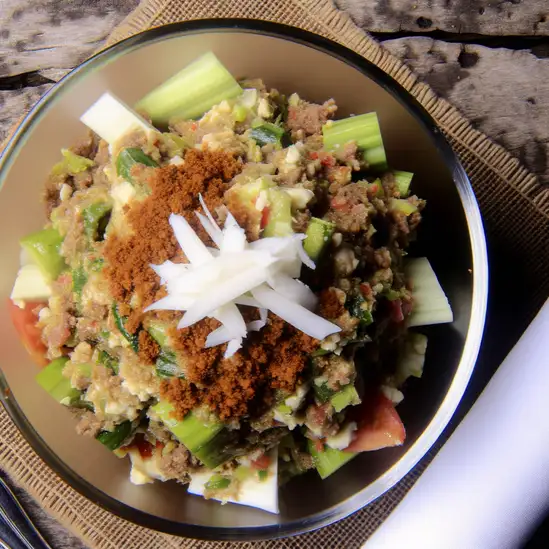
A traditional mix made from vegetables, coconut, and minced meat, seasoned with a variety of spices, often served as a side dish.
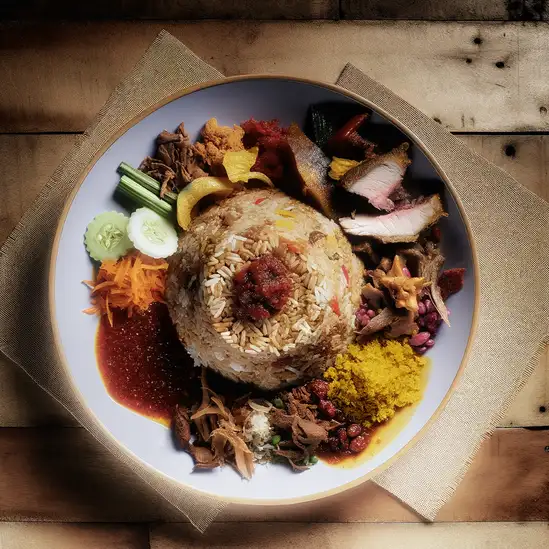
A mixed rice dish served with a variety of side dishes, including vegetables, meats, and sambal, reflecting the diverse flavors of Indonesian cuisine.
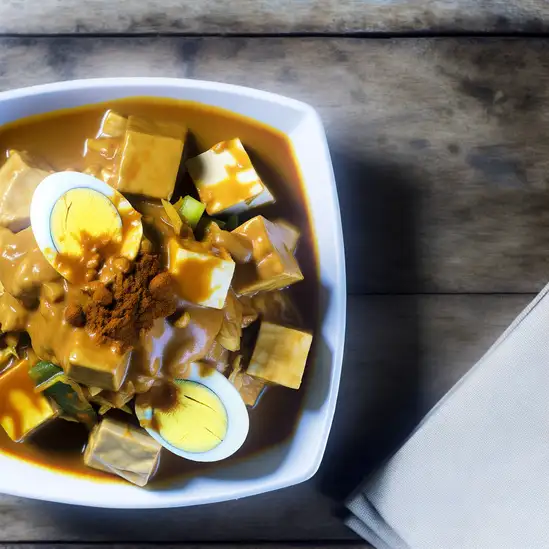
A traditional salad made with boiled vegetables, tofu, and hard-boiled eggs, topped with a rich peanut sauce.
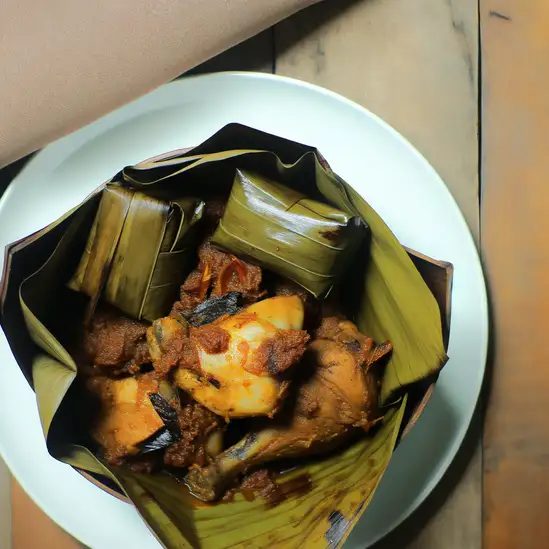
Spicy Balinese chicken dish, marinated with a mixture of spices and herbs, then wrapped in banana leaves and roasted until tender.
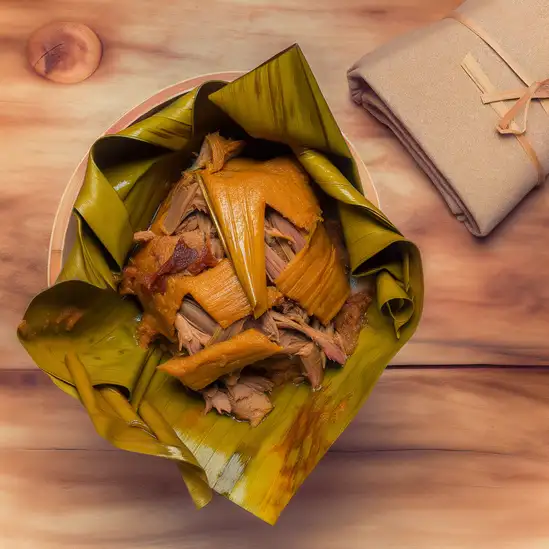
Slow-cooked duck marinated with a blend of spices and wrapped in banana leaves, resulting in tender meat infused with rich flavors.
If you ever find yourself craving a place where time slows down just enough to savor every moment,Ubud is that kind of sanctuary. Nestled in the lush heart of Bali,this town hums with a gentle rhythm—part spiritual retreat,part creative hub. Walking through its streets,you’ll catch the scent of frangipani and incense mingling with the earthy aroma of wet rice fields nearby. The air feels alive,filled with the soft chatter of locals,the distant clink of gamelan music,and the occasional call of a rooster greeting the dawn.
Ubud’s charm lies in its seamless blend of tradition and artistry. Temples with intricate stone carvings peek through vibrant greenery,while open-air markets burst with colorful textiles,hand-carved masks,and fresh tropical fruits. You can sip on a rich,earthy cup of Balinese coffee at a cozy café,watching artisans craft delicate silver jewelry or dancers rehearsing for an evening performance. It’s a place where culture isn’t just observed—it’s lived and breathed.
What really stays with you is the warmth of the people and the sense of connection to nature and spirit. Whether you’re wandering through the terraced rice paddies,joining a yoga class overlooking the jungle,or simply sitting by the Campuhan Ridge Trail at sunset,Ubud invites you to slow down,breathe deeply,and soak in a world that feels both ancient and vibrantly alive.
Denpasar has this vibrant,lived-in energy that instantly pulls you in. It’s not the polished tourist hub you might expect from Bali,but rather the bustling heart where locals go about their daily lives with warmth and rhythm. Walking through its streets,you’ll hear the hum of motorbikes weaving through traffic,the chatter of market vendors calling out fresh produce,and the occasional clang of temple bells weaving into the city’s soundtrack. The air carries a mix of fragrant spices,sizzling street food,and the earthy scent of incense from nearby shrines.
What I love most about Denpasar is how it feels like a genuine slice of Balinese culture. The city pulses with tradition—colorful ceremonies unfold in the temples,and you’ll spot locals dressed in sarongs,carrying offerings with quiet reverence. At the same time,there’s a youthful buzz in the cafes and art spaces,where creativity bubbles alongside age-old customs. It’s a place where you can savor a plate of spicy babi guling from a humble warung,then wander through the art markets filled with intricate wood carvings and vibrant paintings.
Denpasar invites you to slow down and soak in the everyday magic—the warmth of the people,the rich smells,and the lively streets. It’s a city that doesn’t shout for attention but rewards those who take the time to explore its layers. If you want to experience Bali beyond the beaches,Denpasar offers a genuine,colorful glimpse into the island’s soul.
Imagine stepping into a place where the sun kisses your skin,the ocean hums a steady rhythm,and the air carries the scent of salty waves mixed with sizzling street food. That’s Kuta for you—a lively beach town in Bali that pulses with energy but still feels effortlessly laid-back. From the moment you arrive,you’re wrapped in a warm,welcoming vibe that’s both vibrant and relaxed. The beach stretches wide,dotted with surfers catching waves and locals selling fresh coconut water,while the sunset paints the sky in fiery oranges and pinks.
Walking through Kuta’s streets,you’ll hear a blend of languages,laughter,and the occasional beat of gamelan music drifting from a nearby warung. The town’s character is a colorful mix of traditional Balinese culture and a buzzing international crowd,creating a unique atmosphere where ancient temples sit just blocks away from lively markets and buzzing nightlife. The aroma of satay grilling over open flames mingles with the tropical flowers blooming nearby,inviting you to slow down and savor every moment.
What makes Kuta truly special is how it balances excitement with ease. Whether you’re learning to surf,bargaining for handmade crafts,or simply lounging on the beach with a fresh mango smoothie in hand,there’s a genuine warmth in the air. It’s a place that invites you to dive into its rhythm,soak up its stories,and leave with a heart full of memories and a little more sun-kissed than when you arrived.
If you’re dreaming of a place where laid-back beach vibes meet vibrant energy,Seminyak is that sweet spot. Imagine waking up to the gentle hum of waves brushing against golden sands,the salty breeze mingling with the scent of frangipani and sizzling street food. It’s a place where mornings start slow with a fresh coconut in hand,and the day unfolds with a mix of chic boutiques,bustling markets,and cozy cafes spilling onto sun-dappled streets.
What really makes Seminyak special is its effortless blend of tradition and trend. You’ll find ancient Balinese temples tucked between sleek beach clubs,and local artisans selling handwoven textiles right next to stylish galleries. The town pulses with a creative spirit—whether it’s the vibrant street art,the soulful sounds of gamelan music drifting from a nearby ceremony,or the tantalizing aroma of spices from warungs cooking up authentic dishes.
As the sun dips low,Seminyak transforms. The sky blazes with fiery oranges and pinks,and the beach comes alive with laughter,clinking glasses,and the soft strum of guitars. Dinner might be fresh seafood grilled over coconut husks or a plate of spicy satay enjoyed under twinkling fairy lights. It’s a place that invites you to slow down,soak in the moment,and savor the rich tapestry of sights,sounds,and flavors that make this corner of Bali unforgettable.
Imagine stepping onto Gili Trawangan and instantly feeling the world slow down. This little island off the coast of Lombok pulses with a laid-back energy that’s both refreshing and contagious. No cars or motorbikes here—just the gentle clatter of horse-drawn carts and the rhythmic splash of waves against white sandy beaches. The air carries a salty tang mixed with the sweet aroma of tropical flowers and sizzling satay from beachside warungs. As the sun dips low,the sky bursts into shades of pink and orange,casting a warm glow over the turquoise waters.
What makes Gili Trawangan truly special is its blend of vibrant island life and serene natural beauty. Days drift by snorkeling alongside graceful sea turtles or cycling through palm-fringed paths,while evenings come alive with the laughter of travelers sharing fresh seafood dinners under starlit skies. The island’s community feels like a patchwork of friendly faces from all over the world,united by a love for simple pleasures and adventure.
There’s a rhythm here that invites you to slow down and savor every moment—the crunch of coral underfoot,the hum of reggae tunes from a beach bar,the cool splash of the ocean after a day in the sun. Gili Trawangan isn’t just a place to visit; it’s a place to feel alive,to connect,and to create stories you’ll want to tell again and again.
Labuan Bajo feels like stepping into a vibrant postcard where the sea meets rugged hills,and every sunset paints the sky in fiery oranges and pinks. When you arrive,there’s this laid-back energy that wraps around you—locals chatting over fresh fish markets,the salty breeze mingling with the scent of tropical flowers,and boats bobbing gently in the harbor. It’s a place where time slows down just enough for you to soak in the simple beauty of island life.
Walking through the town,you’ll hear the lively chatter of fishermen,the clinking of glasses at cozy beachfront cafes,and the distant call of exotic birds. The streets are dotted with colorful warungs serving up spicy sambal and freshly grilled seafood that tastes like it was caught just moments ago. There’s a warmth in the smiles of the people here,a genuine friendliness that makes you feel instantly welcome.
What really sets Labuan Bajo apart is its gateway to the Komodo National Park. Beyond the town’s charm,you can dive into crystal-clear waters teeming with vibrant coral reefs or trek through dry savannahs to spot the legendary Komodo dragons. It’s a place where adventure and tranquility coexist,where you can lose yourself in nature’s wonders and then return to a hammock overlooking the calm sea,feeling utterly content. Trust me,Labuan Bajo isn’t just a destination—it’s an experience that stays with you long after you leave.
Money changers may use sleight of hand or miscount money to shortchange tourists during currency exchanges.
Scammers may give tourists incorrect directions to popular spots, leading them to shops or services where they earn a commission.
Scammers may set up fake checkpoints or booths near popular attractions, charging tourists bogus entrance fees for areas that are actually free to access.
Tourists renting motorbikes may be accused of causing pre-existing damage to the vehicle and are forced to pay hefty repair fees.
Some restaurants or warungs may not display prices and charge tourists significantly more than locals for the same items.
Local guides may approach tourists and offer guided tours at inflated prices, often claiming that certain areas are inaccessible without their help.
Locals may charge tourists for parking near waterfalls or other attractions, even though parking is supposed to be free or much cheaper.
Indonesia has very strict laws regarding drug use, possession, and trafficking. The penalties for drug-related offenses are severe and can include long prison sentences, heavy fines, and even the death penalty for trafficking. Tourists should be extremely cautious and avoid any involvement with illegal drugs while in Munduk or anywhere else in Indonesia. Even small amounts of drugs can lead to serious legal consequences.
In Munduk, Indonesia, smoking is generally allowed in public places, but there are restrictions in certain areas such as government buildings, healthcare facilities, and educational institutions. It is also common courtesy to avoid smoking in crowded places and to ask for permission before lighting up in someone's home or in a restaurant. Some tourist areas and accommodations may have their own specific rules regarding smoking, so it is advisable to check with local establishments.
Vaping is subject to similar regulations as smoking in Munduk. While it is not explicitly banned, it is recommended to follow the same guidelines as smoking, avoiding vaping in restricted areas such as government buildings, healthcare facilities, and educational institutions. Additionally, it is polite to ask for permission before vaping in private or semi-private spaces.
What are other people saying about Munduk?
Recent Social posts about Munduk
There is nothing to show you for now.